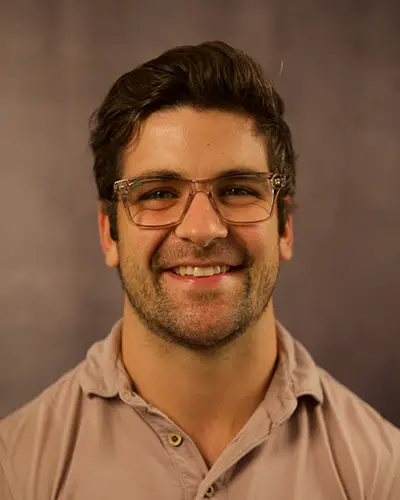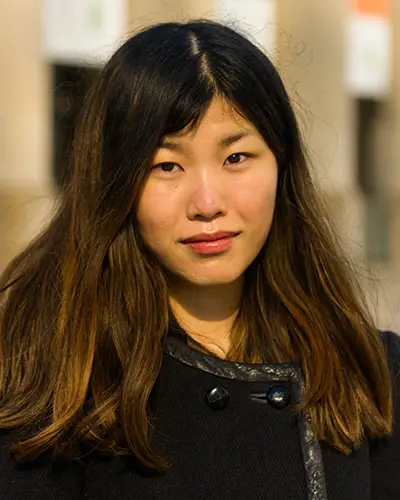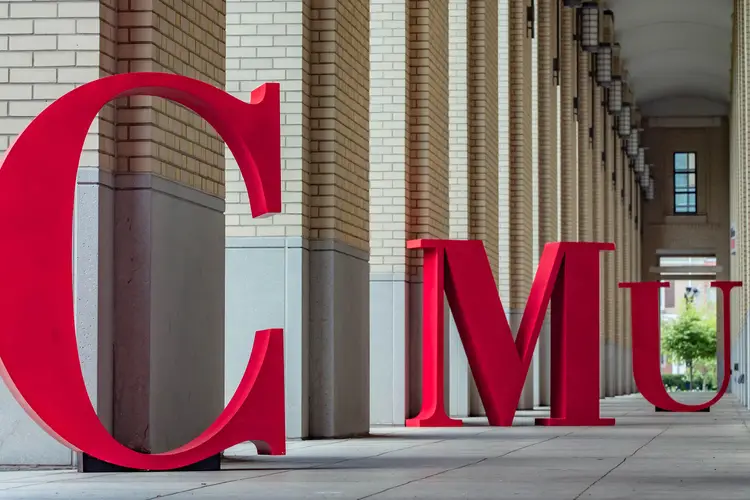
Eight Carnegie Mellon Students Named SoftBank Group–Arm Fellows
Media Inquiries
Eight Carnegie Mellon University Ph.D. students have received the SoftBank Group–Arm Fellowship to support research at the intersection of artificial intelligence and human collaboration.
“Carnegie Mellon is thankful for the support of SoftBank Group Corp. to fund the SoftBank Group–Arm Fellowship. These fellowships will empower students to harness AI to push scientific discoveries in fields like multimodal and multilingual learning, robotics, autonomy and life sciences,” said Martial Hebert(opens in new window), dean of CMU's School of Computer Science. “As part of the CMU and Keio partnership, the SoftBank Group–Arm Fellowship will catalyze transformative research and promote collaboration with industry to unlock the full potential of AI.”
The program builds on CMU’s ongoing relationship with Keio University in Japan, announced in 2024 as part of a $110 million effort to bring together universities, government and industry to advance AI research and innovation. The CMU–Keio partnership has explored embodied intelligence for home robotics, methods to reduce hallucinations in large language models and AI-driven approaches to biomedical discovery.
In May, SoftBank Group Corp. and Arm announced $15.5 million in funding to Carnegie Mellon to support the partnership with Keio, including the SoftBank Group–Arm Fellowship. The fellowship, funded by SoftBank Group Corp., covers tuition, fees, books, and research expenses such as travel and equipment, in addition to providing a stipend. Fellows are nominated by faculty and pursue projects in one of four focus areas: multimodal and multilingual learning, embodied AI for robotics, autonomous AI symbiosis with humans, and life sciences and AI for scientific discovery.
Embodied AI for Robotics
Leena Mathur, a doctoral student in the Language Technologies Institute(opens in new window) (LTI), received a two-year fellowship to advance socially intelligent AI systems that can work alongside people in real-world environments. Her research develops algorithms that help robots infer human intent from multimodal cues, such as speech and gesture, enabling them to act proactively in support of human health and well-being.
Yufei Wang, a one-year fellow in the Robotics Institute(opens in new window) (RI), is addressing one of robotics’ most difficult challenges: transferring policies trained in simulation into real-world environments. His research develops scalable methods for sim-to-real learning, including generative simulation pipelines that automate data collection and allow robots to generalize across diverse objects and tasks.
Autonomous AI Symbiosis With Humans
Patrick Callaghan, who received a two-year fellowship in the RI, studies how robots learn from human teachers. His work applies the second-order theory of mind — the ability to reason about what others believe about themselves — to improve robot-teacher communication, making learning more intuitive and effective.
Feiyu Gavin Zhu, beginning a one-year fellowship in the RI, investigates how household robots can adapt to individual preferences with limited data. Drawing on cognitive architectures and program synthesis, his work seeks to create modular, teachable policies that allow non-experts to personalize robots quickly and effectively.
Multimodal and Multilingual Learning
Pranjal Aggarwal, supported with a one-year fellowship in the LTI, is developing computer-use agents that can autonomously interact with digital environments, from software development platforms to scientific tools. His vision focuses on creating self-improving agents that not only solve problems but generate and refine new ones, building toward open-ended AI systems with real-world economic impact.
Emmy Liu, a two-year fellow in the LTI, studies how reinforcement learning can improve reasoning in large language models. Her work seeks to enable AI systems to generate and refine scientific ideas or creative writing with more principled, scalable feedback, extending methods like reinforcement learning from human feedback into open-ended domains.
Life Sciences and AI for Scientific Discovery
Shiyi Zoe Du, awarded a two-year fellowship in the Ray and Stephanie Lane Computational Biology Department(opens in new window), is designing failure-adaptive laboratory intelligence — agentic AI systems that treat experimental setbacks as opportunities for discovery. Her research explores next-generation AI systems that integrate science, technology and medicine into a self-updating platform driving biomedical innovation and more.
Yizhou Zhao, beginning a one-year fellowship in the Department of Electrical and Computer Engineering(opens in new window) in the College of Engineering, explores how digital twins — high-fidelity virtual replicas of the physical world — can be automatically generated from videos. His research could transform lab automation and material science by enabling robots to build predictive models simply by observing experiments.
Together, the eight fellows mark a continuation of CMU and Keio University’s efforts to advance human-AI collaboration. Their research — spanning robotics, language technologies and the life sciences — reflects the partnership’s emphasis on global impact through interdisciplinary discovery.









